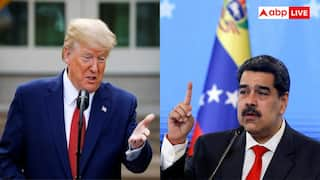Tesla Layoffs: Elon Musk's EV Firm To Fire 693 Employees In Nevada
Tesla Layoffs: The announcement follows Tesla's recent significant layoffs in Texas and California, which affected up to 6,020 employees

Tesla Layoffs: Elon Musk’s Tesla is set to layoff 693 employees at its facilities in Sparks, Nevada, as part of its initiative to reduce over 10 per cent of its worldwide workforce due to declining sales and increasing competition, according to a government notice released on Saturday, reported the news agency Reuters.
The notice was submitted to the Nevada Department of Employment, Training, and Rehabilitation earlier this week, as mandated by US labour law. The law requires companies with 100 or more employees to notify authorities 60 days in advance of planned closings or significant layoffs, as per the report.
The announcement follows Tesla's recent significant layoffs in Texas and California, which affected up to 6,020 employees. These actions are part of a broader cost-cutting initiative aimed at adjusting to evolving market dynamics within the electric car industry. With Tesla employing over 140,000 individuals worldwide as of late 2023, the current layoffs constitute a substantial percentage of its workforce, according to the report.
Recent reports also suggested that the CEO, Elon Musk, has advocated for an even more substantial Layoffs at Tesla, possibly amounting to a 20 per cent job cut, which could result in the elimination of over 20,000 positions in the company.
"As we prepare the company for our next phase of growth, it is extremely important to look at every aspect of the company for cost reductions and increasing productivity. As part of this effort, we've done a thorough review of the organisation and made the difficult decision to reduce our headcount by more than 10 per cent globally. There is nothing I hate more, but it must be done,” the Tesla CEO has reportedly said.
Meanwhile, the EV maker Tesla responded to declining sales and increasing inventories by announcing price reductions for its electric vehicles in both China and the US, effective from April 21. These strategic adjustments target the automaker's two most crucial markets and follow a disappointing first quarter, as reported by Bloomberg.





































